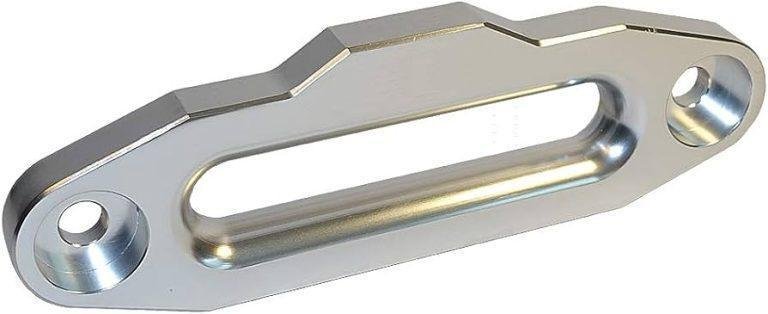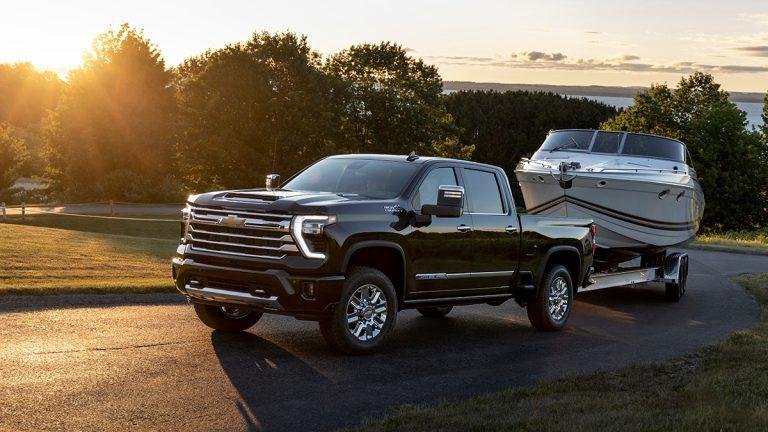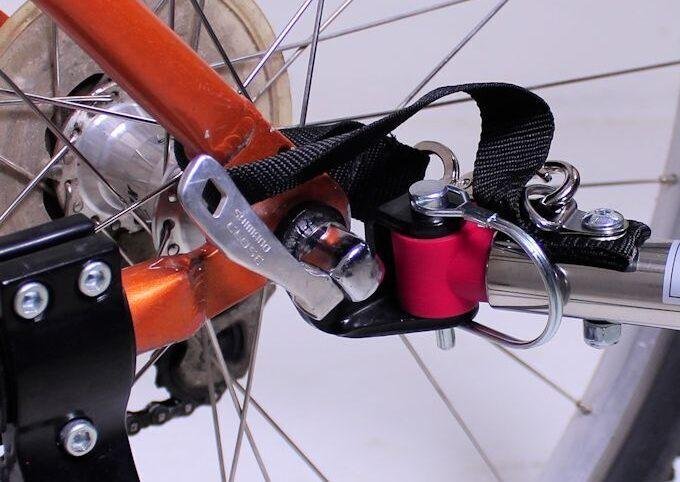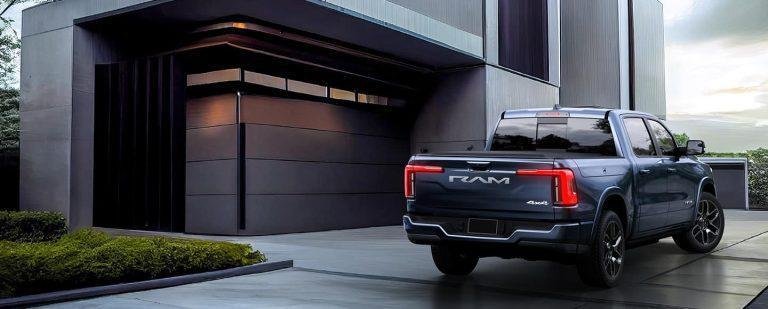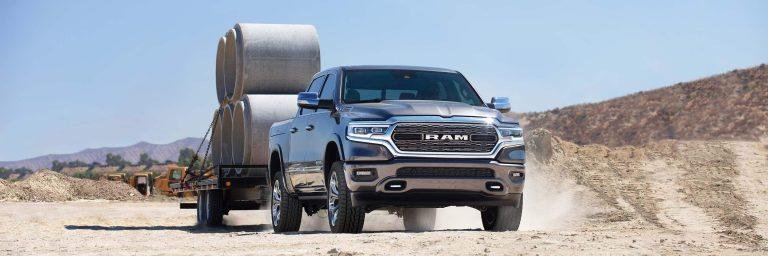To determine the hitch size you need, measure the receiver tube inside your vehicle’s hitch. Personalized measurements are essential for selecting the correct hitch size.
When choosing a hitch, it is crucial to ensure proper compatibility with your vehicle, considering its towing capacity and the weight of your trailer. Selecting the right hitch size will ensure a secure and stable towing experience, preventing any potential accidents on the road.
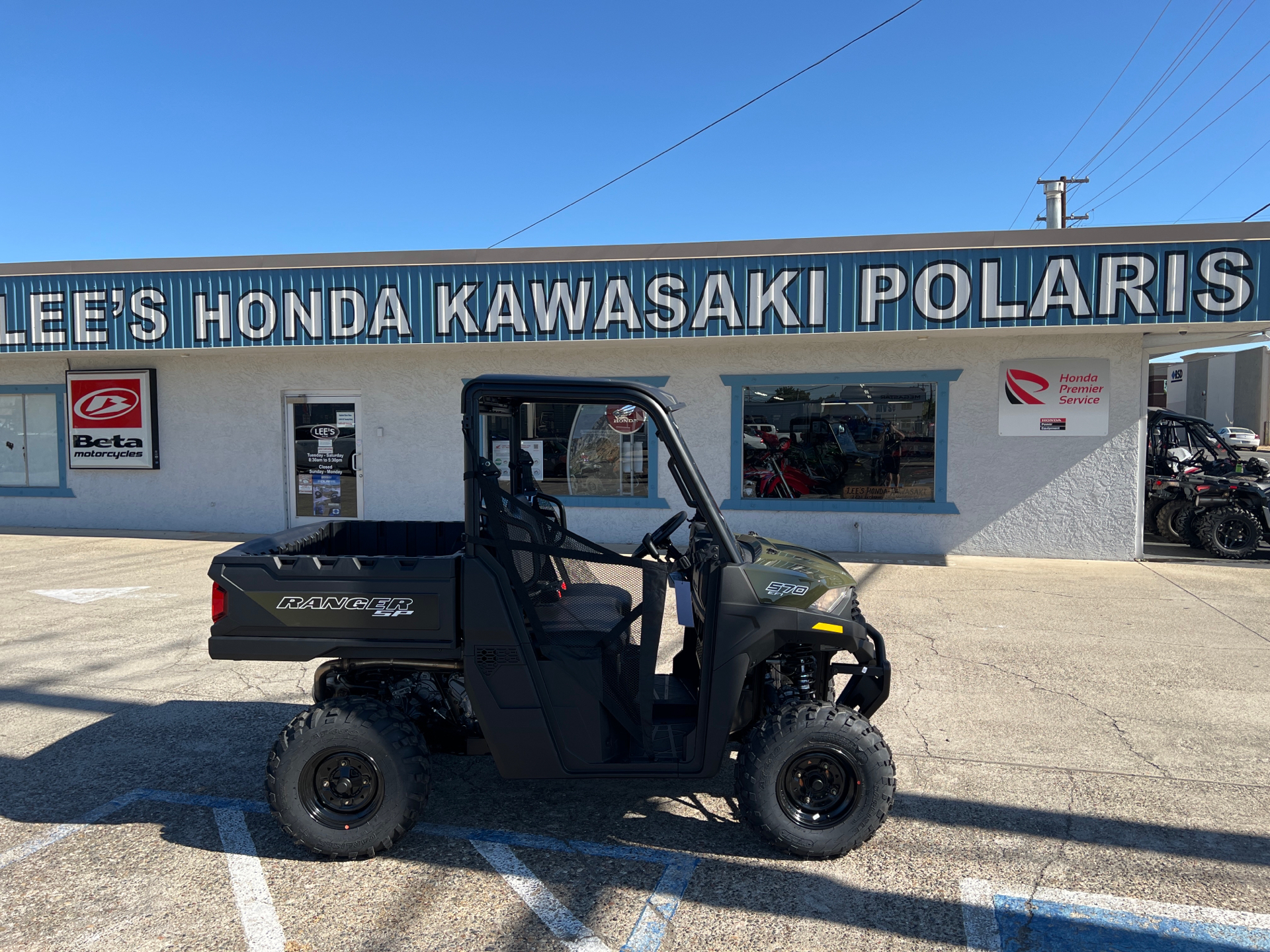
Credit: leeshonda.com
Understanding Hitch Sizes
Choosing the right size hitch for your towing needs is crucial. Consider the weight capacity and compatibility with your vehicle to ensure a safe and secure towing experience.
When it comes to choosing the right hitch for your towing needs, understanding hitch sizes is crucial. Different types of hitches come in various sizes, and selecting the correct one is vital for ensuring safety and optimal performance. In this section, we will explore the different types of hitches and their sizes, key factors to consider when determining the hitch size, and the importance of selecting the right hitch size for your vehicle.
So, let’s dive in and gain a better understanding of hitch sizes.
Different Types Of Hitches And Their Sizes:
- Receiver hitch (class i, ii, iii, iv, v):
- Class i: Designed for small loads, such as bike racks or towing light trailers (1 1/4″ receiver).
- Class ii: Ideal for towing small and medium-sized trailers (1 1/4″ or 2″ receiver).
- Class iii: Suitable for towing larger loads and weighing up to 6,000 lbs (2″ or 2 1/2″ receiver).
- Class iv: Designed for heavy-duty towing and can handle up to 10,000 lbs (2″ or 2 1/2″ receiver).
- Class v: Specifically built for extreme towing capacities, supporting loads over 10,000 lbs (2 1/2″ or 3″ receiver).
- Fifth-wheel hitch:
- Typically used for towing rvs and large trailers.
- Sizes can vary, and it is crucial to select the appropriate hitch size that matches your vehicle’s towing capacity.
- Gooseneck hitch:
- Similar to a fifth-wheel hitch, but it is built for heavy loads, such as horse trailers and flatbeds.
- The hitch ball sizes usually range from 2 5/16″ to 3″.
Key Factors To Consider When Determining The Hitch Size:
- Towing capacity:
- Evaluate your vehicle’s towing capacity to ensure you choose a hitch that can safely handle the load you plan to tow.
- Trailer weight:
- Consider the weight of the trailers or equipment you intend to tow to select a hitch with an appropriate weight rating.
- Gross trailer weight (gtw) and tongue weight (tw):
- Gtw refers to the total weight of the trailer, while tw refers to the downward force exerted on the hitch by the trailer.
- Select a hitch that can handle the gtw and tw of your trailer.
- Vehicle compatibility:
- Verify that the hitch you choose fits your vehicle’s specific make and model. Consult the manufacturer’s guidelines or seek professional advice.
Importance Of Selecting The Right Hitch Size For Safety And Performance:
- Optimal towing experience:
- Choosing the right hitch size ensures that your vehicle can tow the load efficiently, providing a smooth and stable towing experience.
- Safety:
- Using a hitch that is suitable for your towing needs decreases the risk of accidents, trailer sway, and damage to your vehicle.
- Durability:
- Selecting the correct hitch size prevents undue stress on the hitch, helping to extend its lifespan and prevent premature wear and tear.
Understanding hitch sizes is crucial when selecting the right hitch for your towing needs. By considering the different types of hitches and their sizes, key factors like towing capacity and trailer weight, and the importance of selecting the appropriate hitch size for safety and performance, you can ensure a successful and enjoyable towing experience.
So, take the time to evaluate your requirements and make an informed decision when it comes to hitch sizes.
Hitch Classifications Explained
When determining the right size hitch you need, understanding the different hitch classifications is key. Discover how hitch classifications are explained and find the perfect size for your towing needs.
Whether you’re in the market for a hitch or just curious about different types, understanding the various hitch classifications is essential. Hitches come in different classes based on their load-carrying capacities and suitability for specific vehicles. In this section, we will dive into the details of each hitch class, from light-duty to extra-heavy-duty, to help you determine what size hitch you need for your vehicle.
Class I: Light-Duty Hitches For Small Vehicles
- Class i hitches are designed for light-duty towing applications and are ideal for small vehicles such as compact cars and sedans.
- They have a maximum towing capacity of up to 2,000 pounds and a tongue weight capacity of up to 200 pounds.
- Class i hitches are typically equipped with a 1-1/4 inch receiver opening, allowing you to attach various hitch-mounted accessories such as bike racks or cargo carriers.
- These hitches are easy to install, making them a popular choice for those requiring minimal towing capabilities.
Class Ii: Medium-Duty Hitches For Compact Suvs And Minivans
- Class ii hitches are a step up from class i and are suitable for compact suvs and minivans.
- With a higher towing capacity of up to 3,500 pounds and a tongue weight capacity of up to 350 pounds, they offer greater versatility.
- Class ii hitches generally feature a 1-1/4 inch or 2-inch receiver opening, providing compatibility with a wider range of hitch accessories.
- This class of hitches is popular among individuals needing to tow small trailers, bike racks, or carry additional cargo.
Class Iii: Heavy-Duty Hitches For Larger Suvs, Trucks, And Vans
- If you own a larger suv, truck, or van and require more towing power, a class iii hitch might be the right fit for you.
- Class iii hitches have a towing capacity ranging from 3,500 to 6,000 pounds and a tongue weight capacity of up to 600 pounds.
- These hitches often come with a 2-inch receiver opening, making it easier to find compatible accessories.
- Class iii hitches are commonly used for towing mid-sized trailers, boats, or hauling larger cargo loads.
Class Iv: Extra-Heavy-Duty Hitches For Large Trucks And Recreational Vehicles (Rvs)
- When it comes to heavy-duty towing, class iv hitches are the go-to option for large trucks and recreational vehicles (rvs).
- Class iv hitches offer a remarkable towing capacity of up to 10,000 pounds and a tongue weight capacity of up to 1,000 pounds, making them ideal for towing substantial loads.
- Equipped with a 2-inch receiver opening, class iv hitches allow for a wide variety of hitch-mounted accessories.
- If you own a large truck or an rv and plan to tow heavy trailers or transport large recreational vehicles, class iv hitches are your reliable companion.
Now that you have a better understanding of the different hitch classifications and their respective capacities, you can confidently select the appropriate size hitch for your needs. Remember to consider your vehicle’s towing capacity, the weight of your load, and the compatibility with the hitch accessories you may want to use.
With the right hitch in place, you’ll be ready to hit the road and tow with ease.
Determining Hitch Size For Towing Capacity
To determine the correct hitch size for your towing capacity, consider the weight of the items being towed. Match the hitch size to the recommended towing capacity of your vehicle to ensure safe and secure towing.
Understanding Towing Capacity And Its Relationship To Hitch Size
Determining the appropriate hitch size for your towing needs is crucial to ensure optimal safety and compatibility between your vehicle and trailer. The hitch size directly correlates with the towing capacity of your vehicle, which refers to the maximum weight your vehicle can tow.
Here’s a breakdown of how towing capacity and hitch size are connected:
- Towing capacity: Your vehicle’s towing capacity is determined by the manufacturer and is essential information to consider before choosing a hitch size. It represents the weight your vehicle can safely tow, including both the trailer and its contents.
How To Determine The Towing Capacity Of Your Vehicle
Before selecting a hitch size, it’s essential to know the towing capacity of your vehicle accurately. Here are a few ways to determine the towing capacity:
- Consult your vehicle’s manual: The owner’s manual of your vehicle provides detailed information about its towing capacity. Look for the towing section, where you’ll find specific guidelines and limitations.
- Contact the manufacturer: If you are unsure about the towing capacity or cannot find the information in the manual, reach out to the vehicle manufacturer directly. They will be able to provide you with the accurate towing capacity for your specific model and year.
- Use online resources: Various online resources are available where you can input your vehicle’s make, model, and year to get an estimate of its towing capacity. While this can be a helpful starting point, it’s advisable to cross-reference the information with the manufacturer’s guidelines.
Matching The Hitch Size To The Towing Capacity For Optimal Safety
Once you have determined the towing capacity of your vehicle, the next step is to select the appropriate hitch size. Matching the hitch size to your vehicle’s towing capacity is crucial to ensure safe and efficient towing. Here’s how you can achieve optimal safety:
- Consider the trailer weight: The weight of the trailer and its contents should not exceed the towing capacity of your vehicle. It’s essential to factor in additional cargo, equipment, and supplies that will be carried on the trailer.
- Check hitch rating: Different hitches have different weight ratings, which indicate their maximum towing capacity. Ensure that the hitch you choose has a rating that matches or exceeds the towing capacity of your vehicle.
- Consult with experts: If you have any doubts or concerns about selecting the correct hitch size, it’s always a good idea to consult with professionals or experienced tow hitch specialists. They can provide valuable guidance and help ensure that you make the right choice.
By understanding the relationship between towing capacity and hitch size, determining the appropriate hitch for your towing needs becomes a simpler and safer process. Take the time to research and consult the necessary resources to ensure enjoyable and stress-free towing experiences.
Factors To Consider When Selecting Hitch Size
Selecting the right hitch size is crucial for safe towing. Consider factors like your vehicle’s towing capacity, trailer weight, and the type of hitch to determine the appropriate size for your needs.
Determining the right hitch size for your towing needs is crucial for safe and efficient towing. Here are some key factors to consider before selecting a hitch size:
Gross Trailer Weight (Gtw)
- Consider the weight of the trailer and its contents to determine the gross trailer weight (gtw).
- Ensure that the hitch you select can handle the maximum gtw.
Tongue Weight (Tw)
- Tongue weight refers to the downward force exerted by the trailer on the hitch.
- The ideal tongue weight should typically be around 10-15% of the gtw.
- Choose a hitch that can handle the required tongue weight to maintain stability while towing.
Vehicle’S Maximum Towing Capacity
- Check your vehicle’s manual to find the maximum towing capacity.
- Select a hitch that aligns with this capacity to ensure safe towing without exceeding your vehicle’s limits.
Compatibility With Towing Accessories
- Consider any additional towing accessories you plan to use, such as weight distribution hitches or sway control devices.
- Ensure that your chosen hitch is compatible with these accessories for enhanced towing performance.
Safety Considerations For Hitch Size Selection
- Safety should always be a priority when selecting a hitch size.
- Choose a hitch that provides enough clearance between the rear of your vehicle and the trailer to avoid any potential collisions.
- Ensure proper installation and secure attachment to prevent accidents on the road.
Remember, selecting the right hitch size is crucial to ensure a safe and efficient towing experience. Consider your trailer’s weight, tongue weight, vehicle’s towing capacity, compatibility with accessories, and overall safety when making your decision.
Hitch Size Compatibility With Trailer Types
Choosing the right size hitch for your trailer is crucial to ensure a secure and safe towing experience. Understanding your trailer’s weight and compatibility with different hitch sizes is important to determine the appropriate hitch for your needs.
Matching The Hitch Size To Different Trailer Types
Different trailer types require different hitch sizes to ensure a secure and safe towing experience. Before you hook up any trailer, it’s crucial to understand the compatibility between the hitch size and the type of trailer you intend to tow.
Here are some important considerations:
- Boat trailers: Boat trailers typically require a specific hitch size based on the weight and size of the boat. It’s important to choose a hitch that can accommodate the trailer’s weight and distribute the tongue weight evenly.
- Utility trailers: Utility trailers, which are commonly used for hauling equipment and materials, also come in various sizes and weights. Make sure to match the hitch size with the specifications of your utility trailer to ensure a proper fit and safe towing.
- Camper trailers: When it comes to camper trailers, the hitch size compatibility becomes even more critical. These trailers can be larger and heavier than other types, so it’s vital to select the appropriate hitch size to handle the load and maintain stability during travel.
Considerations For Tongue Weight Distribution
Tongue weight, which refers to the downward force exerted by the trailer on the hitch ball, plays a significant role in safe towing. Consider the following factors to ensure proper tongue weight distribution:
- Hitch weight rating: Make sure your hitch is specifically designed to handle the tongue weight of your trailer. It’s important to choose a hitch with an adequate weight rating to avoid compromising safety and stability on the road.
- Weight distribution hitches: For trailers with heavier tongue weights, it’s advisable to use weight distribution hitches. These hitches help distribute the weight more evenly across the towing vehicle and trailer axles, resulting in improved handling and control.
- Tongue weight measurement: Use a tongue weight scale or consult the trailer manufacturer’s specifications to determine the correct tongue weight. Proper distribution can enhance stability, prevent swaying, and improve braking performance.
Adjusting The Hitch Size For Multiple Trailer Use
If you plan to tow multiple types of trailers, it may be necessary to adjust the hitch size to accommodate each one effectively. Here are some considerations for this scenario:
- Adaptable hitches: Certain hitches offer adjustability, allowing you to change the size easily. These versatile hitches often feature interchangeable balls or adapters to match different trailer couplers.
- Compatibility adapters: In some cases, a hitch adapter can be used to connect a smaller trailer coupler to a larger hitch size. Adapters should only be used when recommended by the hitch manufacturer and considered safe for the intended trailer type.
- Seek professional advice: If you frequently tow various trailer types, consulting with a towing professional or mechanic can ensure you choose the right hitch and make any necessary adjustments for safe towing.
Remember, matching your hitch size with the trailer type, considering tongue weight distribution, and adjusting the hitch size for multiple trailers can significantly impact your towing experience. Prioritizing safety and following manufacturer guidelines should always be the top priority.
Tips For Hitch Size Measurement
Determining the correct hitch size is essential for safe towing. Follow these tips to accurately measure the size you need, ensuring a secure and successful towing experience.
Measuring The Hitch Receiver Opening:
- The first step in determining the size of the hitch you need is to measure the receiver opening of your vehicle. This is where the hitch will be inserted and secured. Following these steps will ensure an accurate measurement:
- Take a measuring tape and measure the inside width of the receiver opening from edge to edge.
- Measure the inside height of the receiver opening from top to bottom.
- Note down these measurements as they will be crucial in determining the appropriate hitch size for your vehicle.
Determining The Dimensions Of The Hitch Size (Length, Width, Height):
- Once you have measured the receiver opening, it’s time to determine the dimensions of the hitch itself. This will ensure a proper fit for your vehicle. Consider the following factors:
- Measure the length of the hitch, which is from the front edge to the back edge of the hitch.
- Measure the width of the hitch, which is the distance between the two sides of the hitch.
- Measure the height of the hitch, which is from the bottom of the hitch to the top. This measurement is important for ensuring that the hitch is not too tall or too low for your vehicle.
Seeking Professional Guidance For Accurate Hitch Size Measurement:
- While measuring the hitch size yourself can give you a good estimate, it is always a wise idea to seek professional guidance to ensure accuracy. Consider the following points:
- Consult with a trusted mechanic or an expert who specializes in hitches to get their advice and recommendations.
- Professional guidance will help you avoid any miscalculations or errors, ensuring that you choose the right size hitch for your vehicle.
- Remember, accurate hitch size measurement will not only ensure safety but also enhance the towing experience.
By following these tips for hitch size measurement, you will be able to determine the correct size hitch for your vehicle with ease and confidence. Remember to measure the hitch receiver opening, determine the dimensions of the hitch size, and seek professional guidance if needed.
With the right hitch size, you can safely and efficiently tow whatever you need, making your journeys hassle-free and enjoyable.
Hitch Size Calculation Examples
Determining the right size hitch? We’ve got you covered! Explore our hitch size calculation examples for a seamless towing experience.
Example 1: Determining The Hitch Size For Towing A Small Boat
So you’re ready for some boating adventures and you’ve got the perfect small boat to hitch up. But before you hit the road, it’s important to determine the right size hitch for your towing needs. Here’s an example scenario to help you understand how to calculate the hitch size for towing a small boat:
- Boat weight: 1,500 pounds
- Tongue weight: 10% of boat weight (150 pounds)
- Hitch class: Class i
- Hitch receiver size: 1 1/4 inches
Based on these specifications, you can determine that you need a class i hitch with a 1 1/4-inch receiver. This will ensure that your small boat is safely and securely hitched to your vehicle, allowing for a smooth and comfortable towing experience.
Example 2: Selecting The Hitch Size For Hauling A Camper Trailer
When it’s time to hit the road with your camper trailer, it’s crucial to choose the right hitch size for safe and efficient towing. Let’s take a look at an example to help you select the appropriate hitch size:
- Camper trailer weight: 3,500 pounds
- Tongue weight: 12% of trailer weight (420 pounds)
- Hitch class: Class iii
- Hitch receiver size: 2 inches
In this case, you would need a class iii hitch with a 2-inch receiver. This hitch size will provide the necessary strength and stability to handle the weight of your camper trailer, ensuring a secure connection between your vehicle and the trailer.
Example 3: Matching The Hitch Size For Heavy-Duty Towing With A Large Truck
If you find yourself needing to tow heavy loads with a large truck, it’s essential to match the hitch size to the demands of your towing requirements. Here’s an example that will help you determine the appropriate hitch size for heavy-duty towing:
- Trailer weight: 10,000 pounds
- Tongue weight: 15% of trailer weight (1,500 pounds)
- Hitch class: Class iv or v
- Hitch receiver size: 2 1/2 inches or 3 inches
In this scenario, you’ll need a class iv or v hitch, depending on the specific weight capacity of your truck. These classes typically require a 2 1/2-inch or 3-inch receiver size. It’s important to match the hitch class and receiver size to your truck’s towing capabilities to ensure safe and reliable heavy-duty towing.
Remember, these are just examples to illustrate how to calculate the hitch size for different towing situations. It’s always recommended to consult your vehicle’s owner’s manual and consider the manufacturer’s recommendations to ensure you select the right hitch size for your specific towing needs.
Hitch Size Faqs
Wondering what size hitch you need? Get all your questions answered with our comprehensive hitch size faqs. Find out the right hitch size for your vehicle and towing needs in a simple and easy-to-understand format.
Common Questions Related To Hitch Size Determination And Selection:
- What factors should i consider when determining the right hitch size for my vehicle?
- How do i measure the size of my existing hitch?
- Can i use a smaller hitch on a larger vehicle or vice versa?
- Are there specific weight ratings i need to keep in mind when selecting a hitch size?
- Are hitch sizes standardized across different vehicle brands and models?
- What are the most common hitch sizes available in the market?
- Do i need to consider the size of the trailer i’ll be towing when choosing a hitch?
When it comes to determining the right size hitch for your vehicle, there are several common questions that may come to mind. It’s important to have a clear understanding of the factors that influence hitch size selection to ensure optimal performance and safety.
Let’s address some of these frequently asked questions.
Addressing Concerns About Interchangeability And Compatibility:
- Can i interchange hitches between different vehicles?
- Is it possible to use an adapter to make a hitch fit a different size receiver?
- What are the risks of using a mismatched hitch size?
- Are there any compatibility issues between different hitch sizes and trailer couplers?
- Can i use a weight distribution hitch with any size receiver?
One concern many people have is whether hitches are interchangeable between different vehicles or if they can be adapted to fit a different size receiver. It’s crucial to understand the potential risks and compatibility issues that can arise from using a mismatched hitch size.
Let’s explore these concerns further.
Tips For Troubleshooting Hitch Size Issues:
- If your hitch doesn’t fit your vehicle, what are your options?
- Can a professional installer modify a hitch to fit if it’s slightly off size?
- What should you do if you accidentally purchased the wrong size hitch?
If you find yourself facing hitch size issues, don’t despair! There are a few troubleshooting options available to help you overcome these challenges. From seeking professional assistance to exploring modification possibilities, we have some useful tips to guide you through any hitch size problems that may arise.
Remember, choosing the correct hitch size is crucial for the safe and efficient towing of trailers. By understanding these common questions and concerns, you’ll be well-equipped to make the right decision for your vehicle and trailer combination.
Frequently Asked Questions On What Size Hitch Do I Need?
How Do I Know What Trailer Hitch I Need?
To determine the right trailer hitch for your vehicle, follow these steps: 1. Check your vehicle’s towing capacity in the owner’s manual or manufacturer’s website. 2. Identify the type of hitch receiver your vehicle has, such as a class 1, 2, 3, or 4.
3. Measure the trailer tongue weight and gross trailer weight, then select a hitch that can handle these weights. 4. Determine the hitch’s compatibility with your vehicle by checking the make, model, and year specifications. 5. Consider any additional features you may need, like a weight distribution system or sway control.
6. Consult a professional or refer to online resources for specific hitch recommendations based on your vehicle and towing needs. Remember, safety should be the top priority when selecting a trailer hitch.
What Are The Three Most Common Hitch Sizes?
The three most common hitch sizes are 1-1/4 inches, 2 inches, and 2-1/2 inches. These sizes refer to the opening of the hitch receiver, where the hitch ball mounts. A 1-1/4 inch hitch is typically used for smaller vehicles and light-duty towing, while a 2-inch hitch is the most common size and can handle a wider range of towing applications.
The 2-1/2 inch hitch is the largest size available and is typically used for heavy-duty towing, such as for larger trucks and trailers. It is important to choose the hitch size that is compatible with your vehicle and towing needs to ensure a safe and secure connection between your vehicle and trailer.
Can You Tow A 2 Trailer With 1 7 8 Ball?
Yes, you can tow a 2 trailer with a 1 7 8 ball.
How Do You Calculate Hitch?
To calculate hitch, you can use a simple formula: hitch = tongue weight + load weight. Start by measuring the tongue weight, which is the downward force exerted on the hitch by the trailer. Use a tongue weight scale or distributed scales to get an accurate measurement.
Next, determine the load weight, which is the total weight of the trailer and its contents. This can be obtained by using a platform scale or by visiting a public weigh station. Once you have both measurements, simply add them together to calculate the hitch weight.
It’s important to ensure that the hitch weight does not exceed the maximum capacity of your vehicle’s hitch. This calculation is crucial for safe towing and helps maintain a balanced load distribution.
Conclusion
To ensure a safe and hassle-free towing experience, it is crucial to determine the correct size hitch for your vehicle. By considering the weight of your trailer, understanding the various hitch classes, and knowing the towing capacity of your vehicle, you can make an informed decision when choosing a hitch size.
Remember that a larger trailer will require a higher capacity hitch, while a smaller trailer can be accommodated by a lower capacity hitch. It is advisable to consult the manufacturer’s guidelines or seek professional advice to avoid any potential risks.
Taking the time to accurately assess your towing needs and selecting the appropriate hitch size will not only enhance the stability and safety of your journey, but it will also protect your vehicle from unnecessary wear and tear. So, pay close attention to these factors and enjoy a smooth and secure towing experience.


